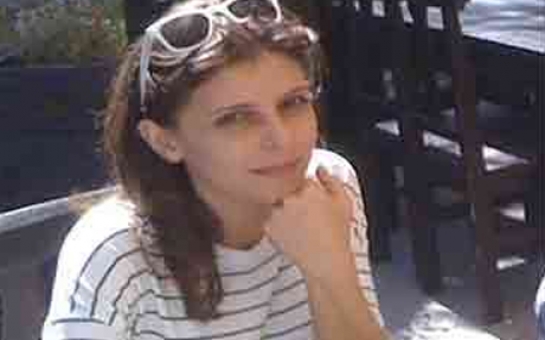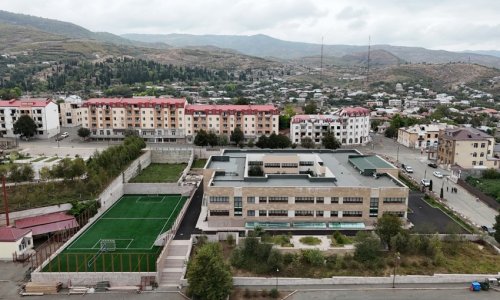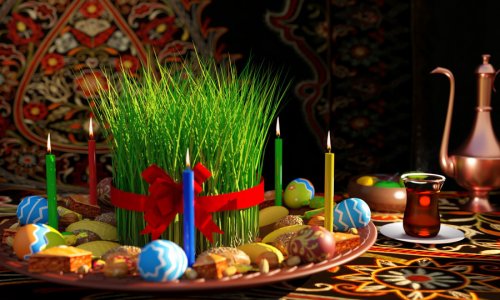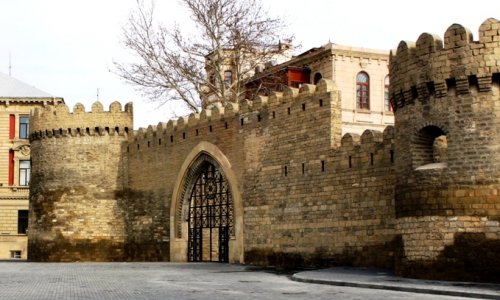We met at the last 3rd Baku International Book Fair. Eti Japaridze is the Executive Director of the Georgian Siesta Publishing House. ANN.Az offers its readers an interview with a representative of the neighboring country on book publishing and sale, as well as the Georgian literature.Q: Eti, about two years ago I took part in the international literary festival organized by the Siesta in Tbilisi. I have enough informationabout the structure that you represent. But I want you to tell Azerbaijani readers about this publishing house.A: Today, the Siesta Publishing House is one of the leaders of the Georgian book market. On average, we publish five books per a month. Since the foundation, we have published 300 books. The publishing house, which operates since 2004, is managed by Ketevan Kegoradze. We publish only fiction including both classic literature and modern works by young writers. Publications include both prose and poetry, and dramatic works, essays, and various anthologies. The Siesta is the only publishing house in Tbilisi that prefers novice writers. 80 % of our new publications were written by young writers. Of course, this is fraught with serious problems and often leads to financial losses, since all the printing, sales and PR costs are paid by the publishing house. After publication of a new book we advertise it on websites, social networks, conduct presentations in the publishing house and points of sale and invite TV. Our authors became nominees for the Best Novel of the Year, the Best Play of the Year, the Best poetry collection of the Year, the Best Debut of the Year , etc., and also repeatedly - in 2007, 2008 , 2009, 2013 – received the Saba national literary award, in 2009 - Muza and Qala and other awards.Q: Are book sales profitable for the publishing house? What is the overall situation in Georgia with selling books? Is there any buyers?A: Of course, it is not so much profitable. The situation is the same as yours. No significant differences.Q: And what about the work with the sponsor organizations?Are there representatives of businessthat provide financial support for the Siesta?A: Unfortunately, businessmen are not interested in this area. We work mainly with humanitarian funds, the Ministry of Culture– we have agreements with them - and, as usual, we get financial support from them. In terms of translated literature, we successfully cooperate with international funds.Q: You said you prefer youngwriters. Are there any age restrictions?A: No. When we say "the young writers”, we mean only the novices and not yet well-known writers. Age absolutely does not matter. It happens that a person is fifty years old, but he only started writing or, to be precise, has not shown his writings so far.Q: Probably, you give preference to Georgian literature...A: I would not say that. Among the books we publish are a lot of works by foreign writers, that is, books translated into Georgian. In addition, we organize the publication of local authors abroad. That is, in any case, we are interested in expanding cultural ties. Let our writers be translated and published in you country, and yours, respectively, in Georgia. Let them be known. We are in talks on this issue with a number of your publishers. There are interesting ideas. Certainly, after deciding financial issues, we will be able to present joint projects in the near future.Q: What does the Georgian reader prefer: works by local writers or translated literature?A: Translated fiction books are frequently bought. In most cases, buyers prefer bestsellers. They are more interested in world literature, which includes classic literature and works by modern authors.Q: What criteria should guide your publishing house, when it chooses translated literature?A: First of all, we are interested in the originality of a text and translation quality. Sometimes the same product is offered by three translators. In this case, no matter how it was difficult, but our experts get familiar with the quality of all three versions of a translation. Basically, this is the only difficulty. But if you want to choose the best translation, you should proceed from this criterion. I should stress that we do not accept a book, which was translated from the already translated text. The translation must be done from an original. We can admit a secondary translation only in exceptional cases.Q: What do you think is stronger in the modern Georgian literature- prose orpoetry?A: Prose.Q: Is this due to the rich traditions of the genre?A: I do not think so. I think we should not consider the fact that proseis stronger as positive. Apparently, this has more to do with demand.For some reason, readers are not interested in poetry. Maybe if they read, they would like, butthey do not want to read. They are simply too lazy...Q: Is a literary agency forming in your country?A: No, unfortunately.Q: Then, what does the Georgian writer live on?A: On what he can earn. But he definitely does not live on earnings from books. If he waits for a fee,he will die of hunger.Q: What do you think about the prospects of printing? Couldpublishing houses ever profit from books in your and my country?A: I think this work should be just favourite. This is an area where it is impossible to talk about big financial gains from books. I think the publishing industry will never make much money. We are trying just for the sake of literature. You want to present a good text, and there is absolutely no difference whether it belongs to a local author or a translation. Since 2003, we solemnly hold the ceremony of awarding the Saba national prize (the annual fund of this prize is 20 thousand lari – Ed.) and I can say that every year several authors of the Siesta at the top of its list. It is a very good result. I should mention that our authors are included in the list of winners of the main prizes in 2013 and we are proud of it. Because the Siesta is a small print shop and we cannot publish books in large quantities. For example, if another Georgian publisher produces 500 books per a year, we - just 12. But we are responsible for their quality. In other words, for us it is important not quantity, but quality. Therefore, our authors are more frequently nominated for the Saba.Q: You took part in the book festival in Baku, held meetings with printers and publishers. Can you share your thoughts on the situation with book publishing in Azerbaijan?A: The situations in our countries are very similar. I saw only one difference: you do not have too many examples of children's literature. We have more illustrated books. They have an interesting design, and even elements of toys. This is very important. May be, there is a text for one page only, but it is represented in a way that generates child’s interest.Q: Eti, how many bookstores are in Tbilisi?A: Somewhere over 50. However, I do not take into account book stands in the large stores. As for othercities, there are usually two-three shops depending on the population size. At least one store should be there. In addition, there are 10-15 literary cafes in Tbilisi. The other day, such acafe opened inBatumi. Works in this direction continues.Q: At the same time people rarely buy books.A: Yes, the number of storesis not the problem. Readers must be somehow interested. There is another nuance - selling digital versions of books is becoming popular in Georgia. That is, approximately 20-30percent of customers buy books on electronic websites.Rabiga NazimgyzyANN.Az
Georgian publisher: If the writer will wait for his fee, he will die of hunger - INTERVIEW
Culture
13:08 | 11.10.2013

Georgian publisher: If the writer will wait for his fee, he will die of hunger - INTERVIEW
Follow us !










